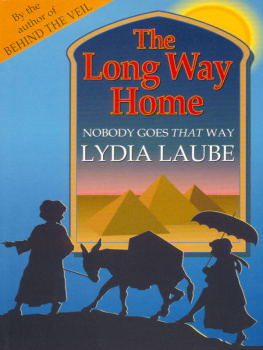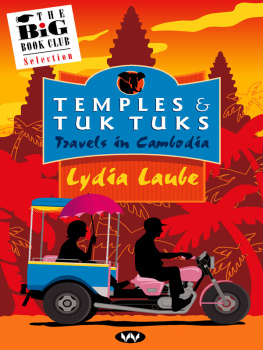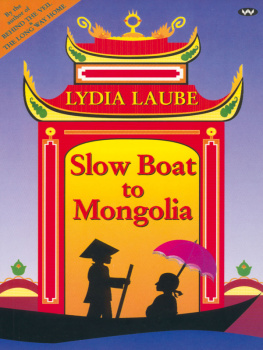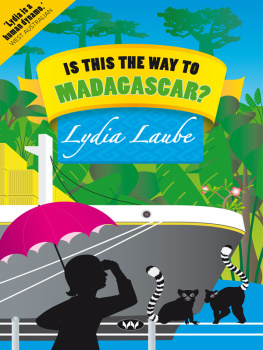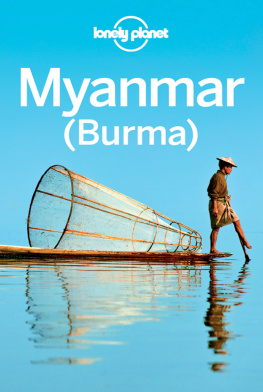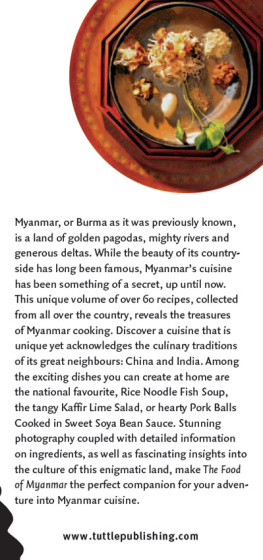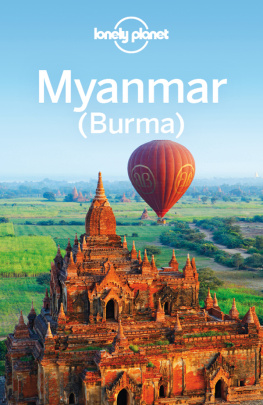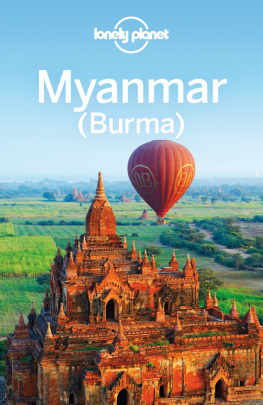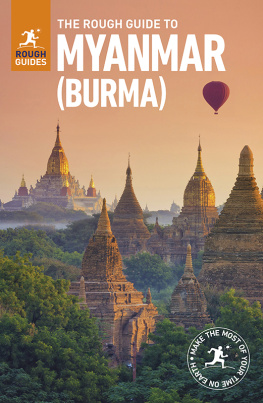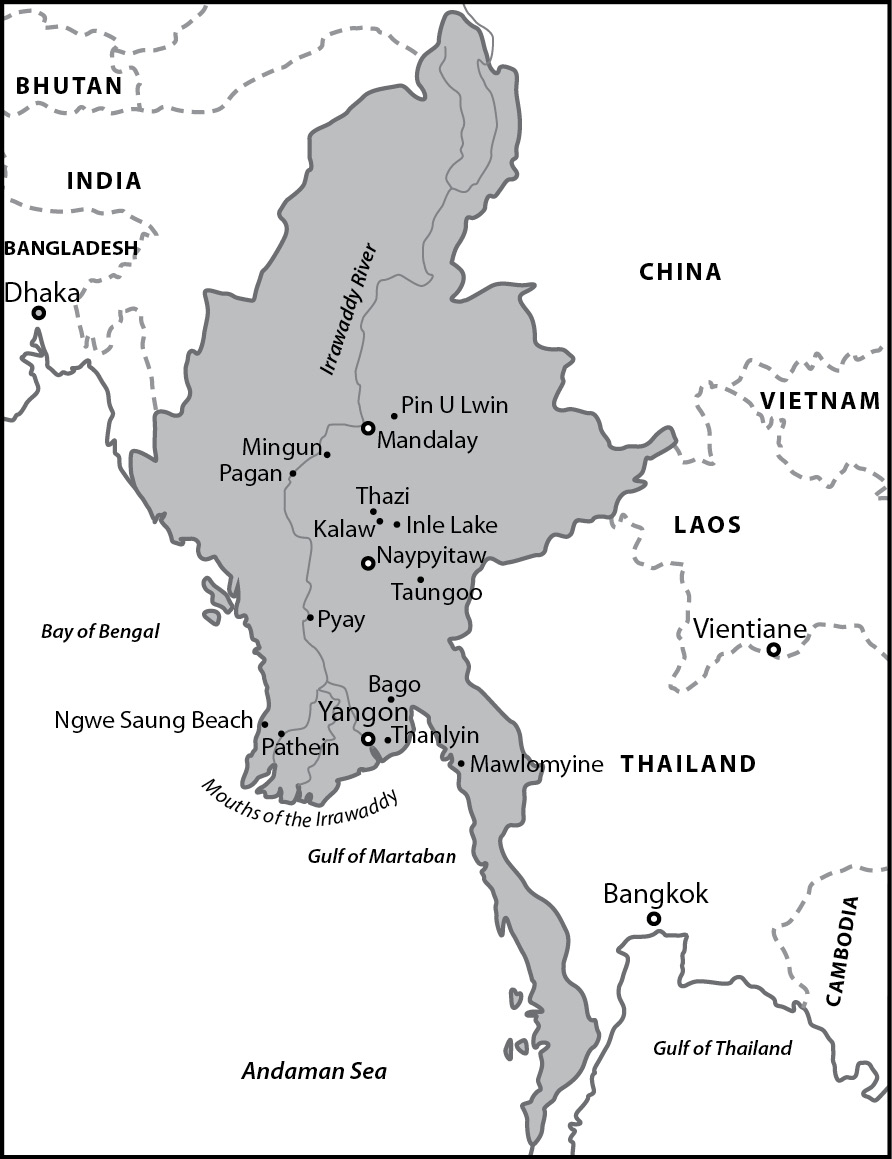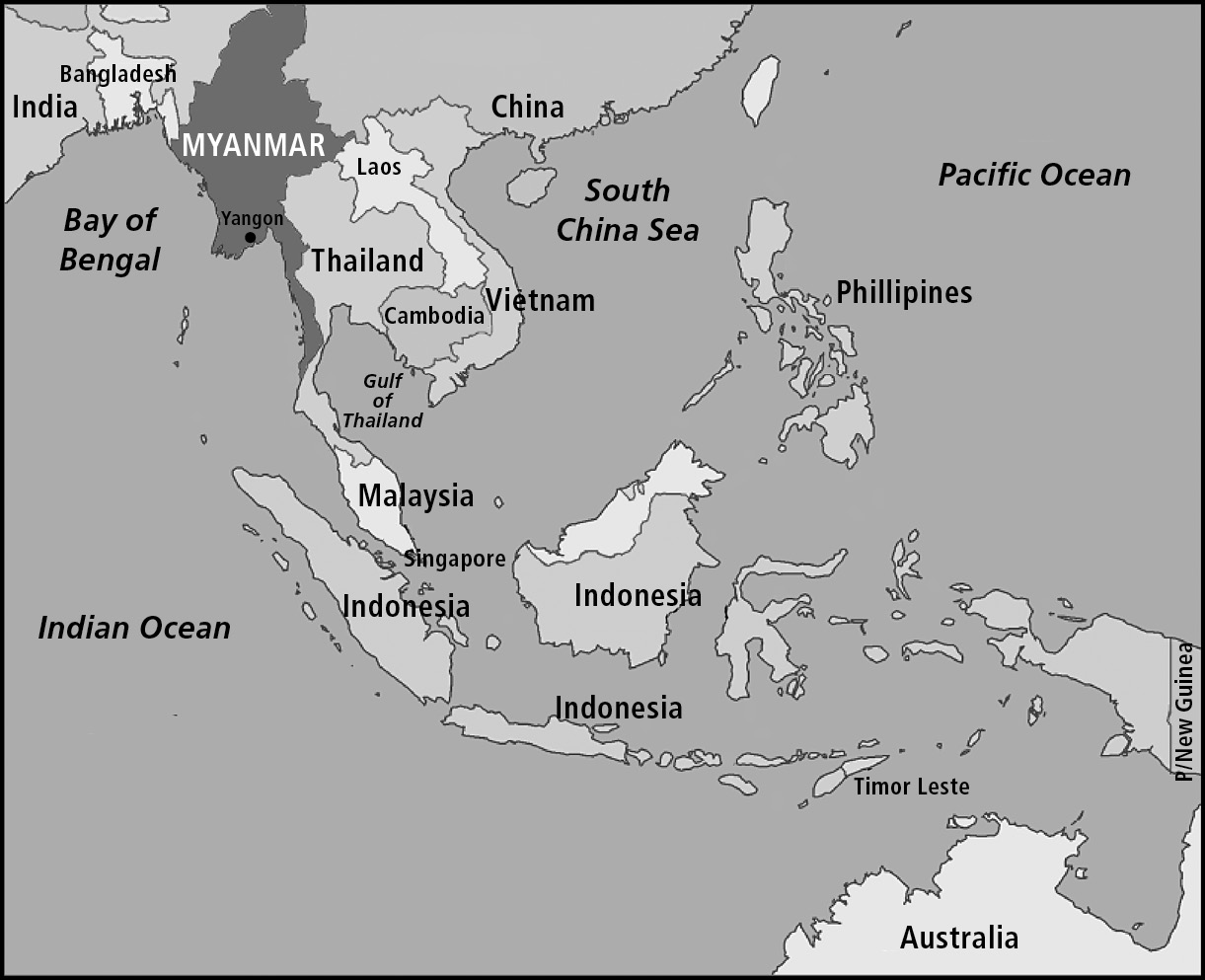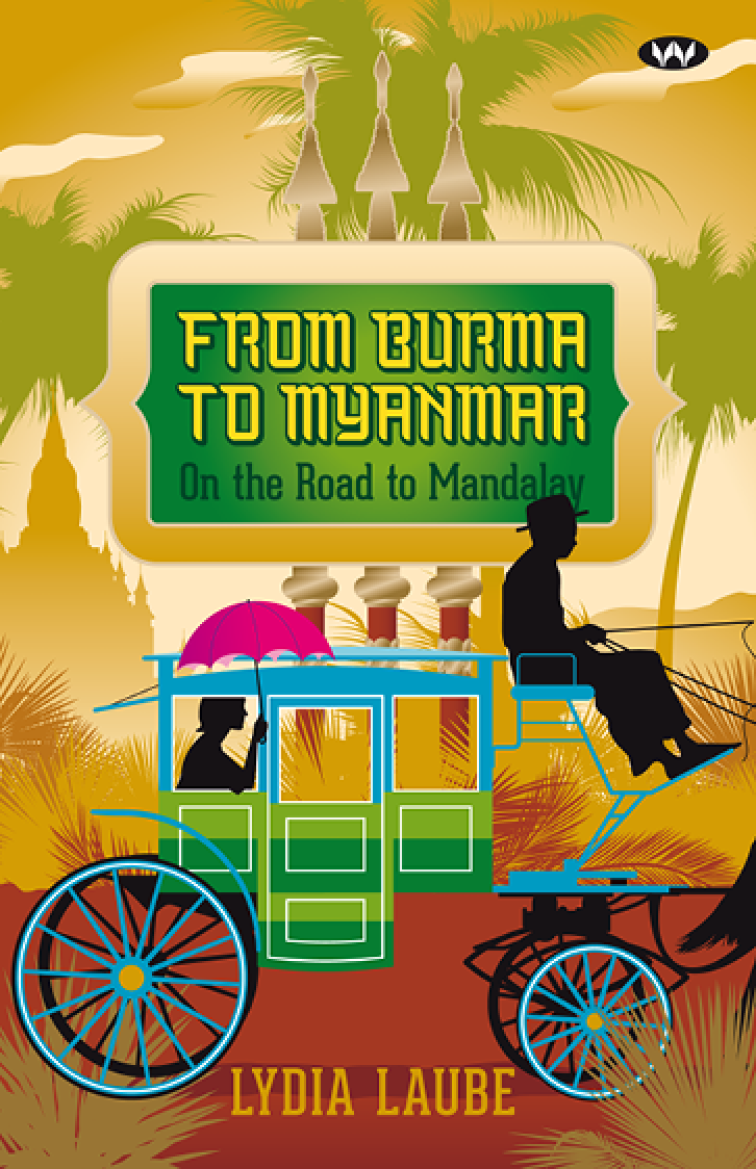
Wakefield Press

Lydia Laube never says no to adventure, whether that means galloping a horse across the Mongolian plains or hopping on a cargo ship to Madagascar. Born into the farming community of Caltowie in the mid-north of South Australia, Lydia trained as a nurse in Adelaide, then set off to see the world. Her debut book, Behind the Veil: An Australian nurse in Saudi Arabia , was an instant bestseller, and she has become one of Australias favourite travel writers. From Burma to Myanmar is Lydias ninth travel yarn.
Between winter escapes to the sun, Lydia Laube shares a small house in Adelaide with a large cat with attitude.
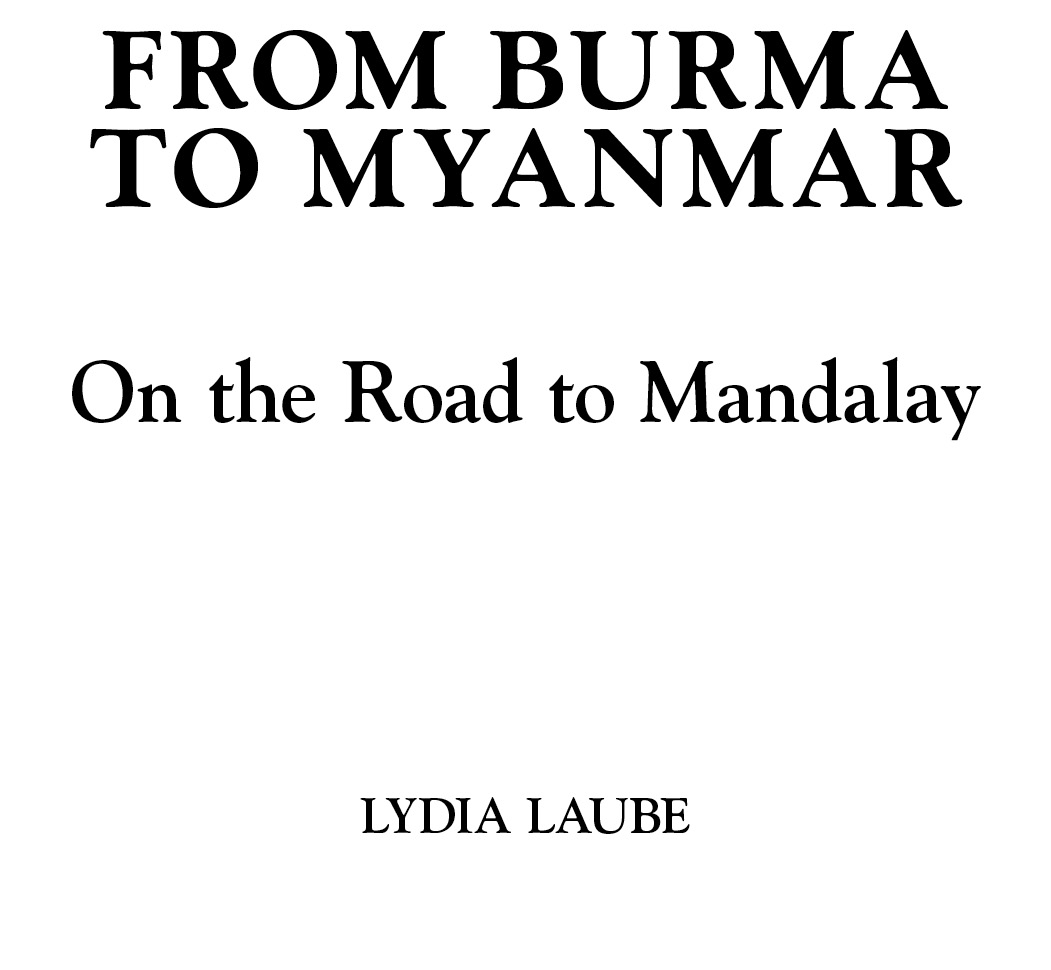

Wakefield Press
16 Rose Street
Mile End
South Australia 5031
www.wakefieldpress.com.au
First published 2015
This edition published 2015
Copyright Lydia Laube, 2015
All rights reserved. This book is copyright. Apart from any fair dealing for the purposes of private study, research, criticism or review, as permitted under the Copyright Act, no part may be reproduced without written permission. Enquiries should be addressed to the publisher.
Cover designed by Dean Lahn, Lahn Stafford Design
Ebook conversion by Clinton Ellicott, Wakefield Press
National Library of Australia Cataloguing-in-Publication entry
Creator: Laube, Lydia, 1948 , author.
Title: From Burma to Myanmar: on the road to Mandalay / Lydia Laube.
ISBN: 978 1 74305 139 9 (ebook: epub).
Subjects:
Laube, Lydia, 1948 ,Travel.
MyanmarDescription and travel.
Mandalay (Burma)Description and travel.
Dewey Number: 910.4
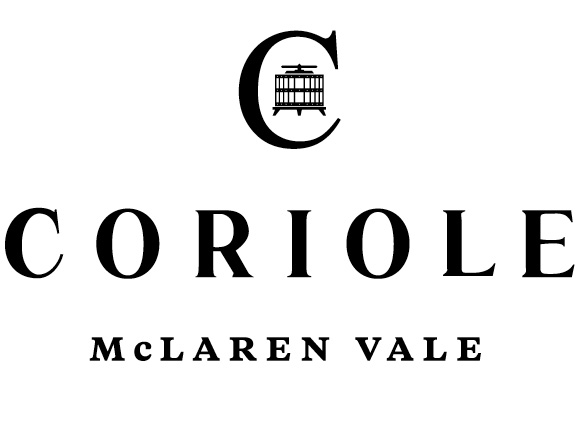
Contents
Mandalay
Rudyard Kipling
By the old Moulmein Pagoda, lookin eastward to the sea,
Theres a Burma girl a-settin, and I know she thinks o me;
For the wind is in the palm-trees, and the temple-bells they say:
Come you back, you British soldier; come you back to Mandalay!
Come you back to Mandalay,
Where the old Flotilla lay:
Cant you ear their paddles clunkin from Rangoon to Mandalay?
On the road to Mandalay,
Where the flyin-fishes play,
An the dawn comes up like thunder outer China crost the Bay!
Er petticoat was yaller an er little cap was green,
An er name was Supi-yaw-latjes the same as Theebaws Queen,
An I seed her first a-smoking of a whackin white cheroot,
An a-wastin Christian kisses on an eathen idols foot:
Bloomin idol made o mud
Wot they called the Great Gawd Budd
Plucky lot she cared for idols when I kissed er where she stud!
On the road to Mandalay
When the mist was on the rice-fields an the sun was droppin slow,
Shed git er little banjo an shed sing Kulla-lo-lo
With er arm upon my shoulder an er check agin my cheek
We useter watch the steamers an the hathis pilin teak.
Elephints a-pilin teak
In the sludgy, squdgy creek,
Where the silence ung that eavy you was arf afraid to speak!
On the road to Mandalay
But thats all shove beind melong ago an fur away,
An there aint no busses runnin from the Bank to Mandalay;
An Im learnin ere in London what the ten-year soldier tells:
If youve eard the East a-callin, you wont never eed naught else.
No! you wont eed nothin else
But them spicy garlic smells,
An the sunshine an the palm-trees an the tinkly temple-bells;
On the road to Mandalay
I am sick o wastin leather on these gritty pavin-stones,
An the blasted English drizzle wakes the fever in my bones;
Tho I walks with fifty ousemaids outer Chelsea to the Strand,
An they talks a lot o lovin, but wot do they understand?
Beefy face an grubby and
Law! wot do they understand?
Ive a neater, sweeter maiden in a cleaner, greener land!
On the road to Mandalay
Ship me somewheres east of Suez, where the best is like the worst,
Where there arent no Ten Commandments an a man can raise a thirst;
For the temple-bells are callin, an its there that I would be
By the old Moulmein Pagoda, looking lazy at the sea;
On the road to Mandalay,
Where the old Flotilla lay,
With our sick beneath the awnings when we went to Mandalay!
On the road to Mandalay,
Where the flyin-fishes play,
An the dawn comes up like thunder outer China crost the Bay!
1 Temple bells are calling
Last night I dreamt I went to Manderley again.
Famous first line of Daphne du Mauriers book, Rebecca .
I, too, dreamed of going back to Mandalay, but it was Burmas Mandalay, not Daphnes Manderley I dreamed of.
So why was I now on my way back to Burma for the fifth time? It wasnt even Burma any more. Now it was Myanmar. Still, something about this country attracted meunfinished business maybe. Or the appeal of the forbidden. Burma has in the past been enticingly coy about letting me in.
The first time I travelled to Burma, over twenty years ago, I was accompanied by my sister. We zoomed around the country at the speed of light. There was no time to stop and smell the flowers as tourists were allowed to stay only one weekan improvement, however, on the twenty-four hours permitted after General Ne Wins 1962 coup. The government he establishedthe worlds longest running military dictatorshipinstalled an isolationist policy that virtually closed the country to outsiders.
They might have kicked you out after a week but the powers that ruled Burma with an iron, if incomprehensible, fist didnt mind how many times you flew in and out. That first brief visit had been enough to show us that Burma was a beautiful country of charming people so we decided to fly out and return again almost immediately.
We started from Bangkok, the best and closest place to get a Burmese visa. Arriving on a stopover deal with Thai International, we spent two nights at the wonderful Royal Orchid Hotel on the riverfront of the Chao Phraya River in central Bangkok, indulging in sumptuous breakfasts and, between bursts of temples and markets, watching the busy river traffic from our tenth-floor room.
Then, visa in hand, we flew on to Rangoon with Thai International, the only permitted way to enter Burma. All other points were and still are off-limits, even though Burma shares borders with India, China, Bangladesh, Laos and Thailand and has an 1199-mile coastline on the Bay of Bengal and the Andaman Sea.
Immediately on arrival we began to play the universal game of Beat the Government Currency Racket. Burmese money was tightly controlled and tourists were supposed to use the much-inflated government rates of the kyat, which you had to buy with US dollars. All exchanges and purchases had to be recorded on a form that was checked when you left the country to prove you had used government sanctioned cash. The only hotels allowed to accept tourists were government owned and their bills had to be paid in dollars. This draconian system presented a challenge not to be ignored by those of us who did not want to give our money to a less than nice government. We fiddled the forms to make it look as though we had changed more money than we had, and paid wherever possible with kyat, which we obtained on the black market, a thriving industry that gave you ten times the official rate. Sometimes we were able to stay (illegally) at small hotels who allowed us (illegally) to pay in kyats that we had obtained (illegally again) on the black market. Another lurk travellers used to obtain a wad of unofficial kyat was to buy bottles of Black Label Johnny Walker whisky and cartons of American cigarettesboth prized and unobtainable in Burmain the duty free shop and then sell them to one of the buyers waiting immediately outside the airport terminal. We did this and it provided a handsome profit in a wad of local money. We were off to a grand start in our life of crime. I found the wheeling and dealing and intrigue to outwit the government great fun, and I was very successful at it too. Did you know that 10 can easily be made into 100 if you find a black pen that looks the same as the one used to record your original amount exchanged?
Next page


